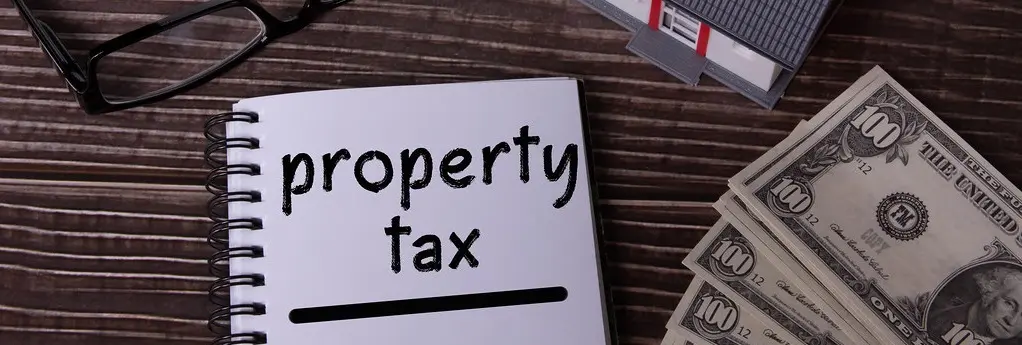
Ever heard those fantastic stories where the home buyer pays $10,000 and sells the house later for $200,000? You might be hearing about tax deed sales. They are not mere fantasies — but, as you might imagine, you are unlikely to be the only one attending an auction. By the time everyone’s done bidding, profit margins can be disappointing. Moreover, homes with tax liens can be in pretty bad shape. A lot of work and money goes into code-compliant home renovations.
So, not every tax deed sale is a fabulous deal. Buyers need to welcome risk, prepare for a lot of work, and come to the auctions well equipped for the territory.
But is your county a tax deed sale state? Or is it actually auctioning tax lien certificates? Or is it a smattering of both? Tax deed sales can ultimately convey properties to the high bidders. In contrast, there’s no home conveyance when you buy tax lien certificates.
Let’s look more closely at these types of investments, and their risk-reward profiles.
Tax Deed Sale Basics
If a homeowner stops paying property taxes, the city or county government records a tax lien certificate. The owners, by law, may have months or years to belatedly pay up. What if they never do? In a tax deed state, the home will end up at a public auction for the amount of the property tax owed, plus fees and interest, so the government can recover that sum.
People wanting to bid on these homes look at their exteriors, and seek out whatever records on the house may be available. But they’ll delay their due diligence until the auction dates are approaching, because not all auctions will actually happen. Some homeowners will pay the debt off first. Other owners will go into bankruptcy.
On the day of the auction, the winning bidder receives a tax deed, then pays the back taxes — essentially lending to the debtor. The debtor now must pay the bidder off within the given redemption period. This means the debtor has to cover the winner’s bid plus a statutory percentage. Otherwise, the sheriff or a service will ultimately evict the debtor. Only then does the bidder take the house. So, assuming the state has a redemption period for the owner to pay up, the bidder has to hold on through that period before doing work on the house (or its title).
Pros and Cons of the Tax Deed Sale
First, the benefits of this form of investment:
- The tax deed sale offers a way to bid on a property — either to fix and flip, sell as-is, or keep as a rental property.
- When mortgaged homes go to auction, the winning bidder, as the superior lienholder, can alert the lender if repayment doesn’t come in. This helps investors, as banks might step in to cover the taxes to avoid losing the loan collateral.
- Some jurisdictions offer no redemption period to former homeowners who owe back taxes. The sale itself clears the claims, and transfers the property.
Now, some drawbacks and risks involved:
- Often, bidders cannot assess the interior condition in order to assess the property value. They buy as-is. There may be unpermitted repairs or faulty systems in these properties. In a worst-case scenario, an environmental hazard could result in condemnation.
- Utilities may be inaccessible until the buyer works with the code administrators to clear up a multitude of building code issues and fines.
- Owners can adopt a retaliatory position against the new buyer. It’s one reason buyers hire lawyers to assist with these transactions.
- In some cases, these property auctions are tainted by procedural errors and omissions, like lack of proper notification to the debtor.
And at first, the home could be uninsurable. Potential bidders should consult with a title insurer before the auction. A winning bidder might need to pursue a quiet title action to clear the title of other recorded and unrecorded liens — unless a tax title clearing service is available. A quiet title action in court takes weeks, and it’s expensive. The tax title service is less time-consuming, and cheaper.
In States Without Tax Deed Sales (Tax Lien States)

In states that auction off liens but not homes, a winning bidder will get a tax lien certificate if the tax debtor doesn’t step up to pay. The bidder pays the overdue taxes up front. The government recovers its back taxes this way.
The investor’s lien takes priority for repayment, because it’s the lien that the tax authority placed on the house. The lien clouds the title, so the property cannot be sold or refinanced, but the investor gets the interest and penalties on the back taxes accrued until the debtor manages to pay it off.
Interest rates are roughly in line with stock market returns, though they vary by jurisdiction.
In some jurisdictions, bidders compete by “bidding down” the interest rate they’ll accept. This means winning bidders get only a fraction of the maximum allowable return on investment.
In other systems, the bidder offering the highest price above the lien amount wins the auction. The investor may or may not get that premium back when the lien is paid off.
What if the property owner fails to pay? Then, the investor can foreclose and gain the house. That could be a profitable scenario. But it’s rare. And even when it happens, it means months of work for an investor’s real estate lawyer in addition to the number of months the jurisdiction allows for the homeowner’s redemption period. Note: Remember that you only paid the overdue taxes up front. At foreclosure, you pay the rest of your bid price, and take title.
Pros and Cons of the Tax Lien Sale
First, the benefits of this form of investment:
- Tax lien certificates have inexpensive upfront costs. The entry point is cheaper here than in a tax deed sale, where five-figure investments are the rule.
- A winning bidder who buys other tax liens associated with the house can benefit from the interest rates on those additional liens, which were not bid down in the auction.
- Some cities and counties offer user accounts for online auctions. The government takes the upfront tax debt from the winning bidder’s account automatically, and mails the tax certificate once the homeowner’s redemption period times out.
- With the assistance of a trustee, tax lien certificates can be purchased for self-directed IRA accounts.
Now, some drawbacks and risks:
- Winning bidders must know and follow the state law on notifications to the property owner according to a timeline.
- Investors wait many months to know if the homeowner will cover their investments.
- Investors get simple (not compound) interest on liens.
Big institutional investors are involved with tax lien certificates. Because of their volume, they’re comfortable bidding down interest rates. This is why many individual investors don’t go to auctions themselves. Some simply pay a fee and have a professional (from the National Tax Lien Association, for example) handle these investments for them.
Know Before You Go
Every state has a body of law on tax deed sales and tax lien certificate auctions. Some states have the former and some have the latter. Some states have “hybrid” systems in which the unredeemed lien certificates ultimately go into tax deed sales.
Each city or county has its own specific set of rules for scheduling and running the auctions, too. Many county tax collectors’ websites have information about auction registration, forthcoming sales and minimum bids, and the acceptable modes of payment.
Wherever tax-delinquent properties or tax liens are sold, the reality isn’t explained in a get-rich-quick advertisement. The due diligence required for tax lien properties is not for the faint of heart. Profit margins can be small for a hefty amount of work, and the return on investment takes time.
Supporting References
Ryan Shaw for Real Estate Witch: Are Tax Deeds Legal in Your State? A Guide to 2021 Investing (Jan. 1, 2021).
Liz Brumer for MillionAcres: A Guide to Buying Tax Deeds (Motley Fool real estate investing blog; updated Feb. 4, 2021).
Related: Tax Lien vs. Tax Deed Investing: What’s the Difference? (updated Mar. 4, 2021).
Dan Kelley for Bankrate: Tax Lien Investing Is Fraught With Risk for Most Investors (Oct. 23, 2018).
Banner photo: Marco Verch. Licensed under CC 2.0. Inline photo: Pixabay, via Pexels.
